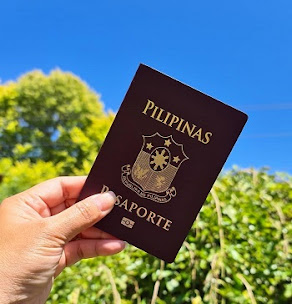Given the Filipinos’ love of food, it’s perhaps no surprise that they also love dining out. Aside from being a go-to way to celebrate special occasions, eating out is also a common bonding activity for friends or family members looking to catch up. Loved ones visiting from abroad or out of town are often treated to meals at their host’s favorite restaurants. And more practically, it’s also common practice for Pinoy professionals to grab lunch or dinner out at least a few times a week, especially if they don’t have time to cook for themselves at home.
Naturally, there are now more than a few social norms around sharing meals and dining out in Pinoy culture. Many of these revolve around handling money—paying for the meal, splitting the bill, tipping after eating, and so on. If you’re new to the Philippines or simply unfamiliar with the etiquette for these things, then you’ll definitely want to keep reading.
Here’s a detailed rundown of some common money-related practices Filipinos employ when dining out:
Libre
Libre is the Spanish word for “free,” and in Filipino culture, it’s also frequently used as a verb. When someone volunteers to libre, they’re offering to treat the other person to a meal, an item in a store, or anything else. There are many occasions on which libre is encouraged or even expected. Hosts and birthday celebrants, for example, typically pay for their guests’ meals. One person inviting another on a date might also offer to libre as a show of appreciation for the other person’s company.
Of course, picking up the bill for others can be hard on your bank account, especially if you’re paying for a large group. Luckily, with the right credit card, you can ease that burden by taking advantage of discounts and special offers. For instance, many cards offer half-price deals and other discounts if you eat at participating restaurants. Taking advantage of these will earn you significant savings and allow you to enjoy your celebration to the fullest.
If you don’t currently own a credit card and make a regular practice of dining out, it’s worth factoring in the availability of dining deals when choosing a good card to apply for. Simply search “credit card Philippines” online, and you can start looking into local credit card products that have deals with certain food establishments. Choose a card that can net you discounts at restaurants you enjoy, and you’ll find that your dining out experience will be all the sweeter.
Kanya-Kanyang Bayad (KKB)
When someone calls “Kanya-kanyang bayad!” or “KKB!” at a gathering, it’s a fun way of saying that everyone participating is expected to pay for themselves. You can think of this term as the Pinoy equivalent of the English phrase “going Dutch,” which is more common in the West.
This approach to dining out isn’t without its challenges. Filipinos are generally generous folk and place a lot of value on maintaining good relationships within their communities. As a result, many sometimes find it difficult or awkward to declare that a particular gathering or hangout should be KKB. Actually splitting the bill once it arrives at your table can also be difficult. You’ll have to calculate how much everyone owes, dole out change to those who need it, and so on.
The following tips can make it easier to navigate money matters at a KKB gathering:
Define Expectations Beforehand
The best way to avoid an awkward situation when it comes to paying for meals is to set expectations for the whole group before you even meet. Let everyone in the group have a say in when you meet, where you meet, and what the price point for the place you eat at should be. That way, everyone knows that they’re expected to pay for themselves and how much cash to bring on the day itself.
Ask for Separate Bills
Restaurants generally won’t agree to issue individual checks to large groups, but if you’re dining out with just one or two other people, this may be worth a shot. Asking for separate checks for each person’s order eliminates having to do tedious calculations after the meal.
Keep Small Bills in Your Wallet
If you intend to pay in cash, then you’ll want to pay the exact amount you owe, or as close to it as possible, so you don’t have to collect change later. The easiest way to do this is to come prepared with a few 100-, 50-, and even 20-peso bills.
Use a Financial App
Digital payment solutions make it much easier to split the bill, as you can simply transfer the exact amount to the paying person’s e-wallet or bank account. This is an especially convenient option for those who are uncomfortable going around with lots of cash in their wallets.
Tipping
Unlike in many other countries, it’s not mandatory to tip your server in the Philippines. Instead, many restaurants will include a service charge with the final bill that essentially substitutes for the tip. In restaurants that don’t levy a service charge, you can tip about 10% of your bill or use your own discretion. Just make sure to hand the money directly to the person you want to tip, so it doesn’t just go to the restaurant.
Don’t let your worries about money and financial etiquette put a damper on enjoying a good meal out with your loved ones. If you familiarize yourself with common conventions and also discuss expectations before meeting, it will be easy to avoid uncomfortable situations at the dinner table.

























Post a Comment